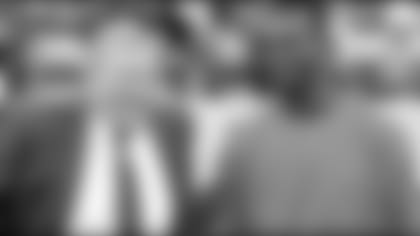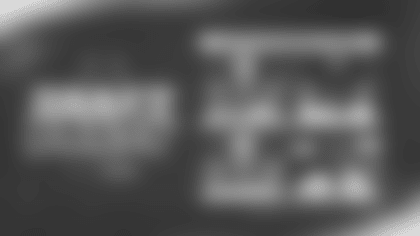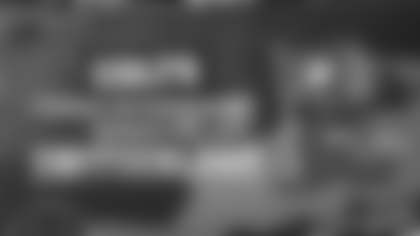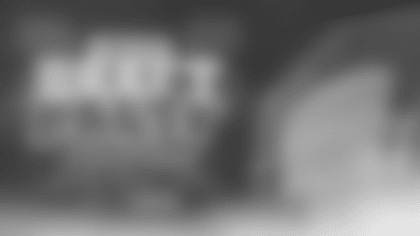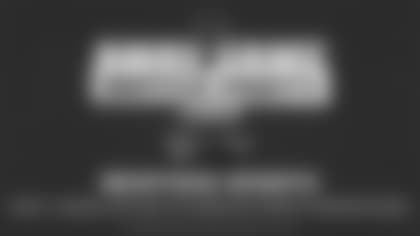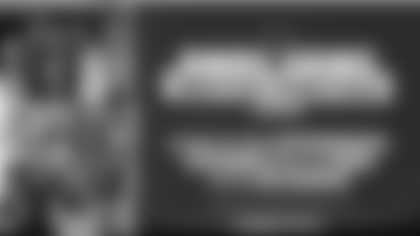Week 8: Colts at Titans
Bill Polian, in his 11th season as Colts president, has a resume unique in the NFL. One of two men to win NFL Executive of the Year five times, Polian in the 1980s built the Buffalo Bills into a four-time Super Bowl participant. In the mid-1990s, he built the expansion Carolina Panthers into a team that made the NFC Championship Game in its second season, 1996. Since joining Indianapolis in 1998, he built the Colts from a 3-13 team in 1997 and 1998 into one that has made the playoffs eight of the last nine seasons, including an AFC Championship Game appearance after the 2003 and 2006 seasons, AFC South titles in 2003, 2004, 2005, 2006 and 2007 and a Super Bowl championship following the 2006 season. Each week during the season, in The Polian Corner, Polian and Colts.com will discuss issues pertinent to the Colts and the rest of the NFL.
Question: A 34-14 loss to the Packers in Green Bay, Wis., this past Sunday. The obvious question . . . what happened?
Answer: Boy. It's a tough question to answer in the aggregate. For one thing, we shot ourselves in the foot with penalties and turnovers. Let me get the appropriate statistic. We had seven defensive penalties, five of which led to first downs. We left them on the field five times when we should have been off it. We had a penalty in the kicking game that gave them a first down. That's six penalties that directly led to first downs. This is no criticism of the officiating, by the way. The officiating was good, from my perspective. We took exception with one call. The officiating had nothing to do with it. That (a high number of penalties) is usually the sign of a team that isn't concentrating. Many of those penalties were pre-snap penalties, such as the illegal motion that wiped out a first down and killed a drive. You can't have that. So, those are things that are within your control to clean up. The other thing we did not do was a good enough job of consistently stopping the run. We did it at times, but there were other times we did not do it at all. That's not good, because it puts you in a situation where they can control the clock, then it becomes a little bit like Water Torture – drip, drip, drip. The more they gain, the more they cause you to be anxious and make mistakes. One thing leads to another and it becomes a snowball rolling downhill. That was clearly the case Sunday. The third thing was we did not execute offensively as well as we have in the past. We didn't catch a lot of balls. We didn't stay in bounds with balls. Just a little half-inch – if you want to use a linear measure – of misfiring or not being on our game. That's correctable, too, because now you just have to hone in on the details and be in a position to make those plays rather than just miss them. That part of it I also think is correctable, but we have our work cut out for us. There are no two ways about that. You can't just dismiss this and say, 'Well, it's an aberration.' It's not an aberration. If you look at the statistics after six weeks – and as Bill Parcells is fond of saying, and very correctly, 'You are what you are' – we're not a very good football team at this point. We're a mediocre, .500 football team and we have a lot of work to do to get better.
Q: You always say you don't look at statistics until about six games into the season . . .
A: I do, and the statistics sort of point it out. Our opponents are averaging 4.4 yards a rush. We're averaging 3.3 yards a rush. From our perspective, as the offensive line gets better and more cohesive, that rushing total will get better. It got better Sunday, and it got better the week before. That's on the upturn and I think that will be better. We have to lower that 4.4 average per rush (against). You're not going to win many games when you allow the other team to rush for 4.4 yards. We have had seven interceptions and we only have intercepted five. That's less than a .500 season if that continues throughout. You can't have that whatever the reasons – and I'm not pointing at (Colts quarterback) Peyton (Manning), by any means. Whether it's a tipped ball, or a ball that bounces off someone's fingers, or whatever – you can't have that. And you have to take way the ball more than five times, more than a little less than once per game, especially with a (pass) rush like ours. Yards rushing per ball game – it relates to the other statistic (yards per rush) – our opponents are 153.5 yards; we are 70.0. That's more than double. You can't have that. Again, you might be shocked, but it ties in with the other part of the defensive performance: 68.1 completion percentage for our opponents, 60.7 for us. It's a little below where we normally are. We're normally in the 65 range, but 68 for your opponents is not going to get it done. Penalties, and this is the most shocking one of all for a Tony Dungy team: we have 46 penalties for 347 yards. Thirty percent of those – 15 – have come on special teams. The opponents have 28 for 217 yards. We're almost 130 yards gross over the course of six games more than our opponents penaltywise. We have a lot of work cut out for us. I've never believed that you shy away from these kinds of statistics. We have said all year: 'Six games will tell us what we are.' What we are right now is not a very good football team, so we have a ways to go. Can we improve it? Yes. Yes, we can, in a lot of different ways, but it needs to improve. Statistics are a measuring stick, and there are some – as I've said many times – that I put much more stock in than others. The ones that I have indicated are clear measures of what you are as a football team and as I said, right now, we're mediocre and the record reflects that. It's rare that your record does not reflect your performance in those categories. We have to get a lot better. That's the bad news. The good news is we have 10 games to get better, so we have to get to work and do what we have to do in order to do that. We may have to maybe think outside the box in terms of getting it done given the injury situation and what have you. But it's not over by a long shot. We have a ways to go and we can improve. So, we have to work to do that.
Q: One positive is there are many teams in the AFC right around the Colts' 3-3 record . . .
A: Let's face it. Last year at this time no one would have given a plug nickel for the New York Giants' chances to win the Super Bowl. In fact, everybody was speculating about (Giants Head Coach) Tom Coughlin being fired. You don't write anything off. This is only a little bit more than a third of the season, so there is plenty of time to get regrouped and do what we have to do, but we need to realize what we are and how far we have to go.
Q: There's an extra day off for players this week because of a Monday Night game at Tennessee next week. Is that good? Does it help you and does it help the team down the road?
A: I'm not sure it really does much of anything other than maybe give you an extra day for the injured guys to rest up and maybe be able to go. I think what it does is give you an extra day to think things through and maybe discuss some things and say, 'Should we do X, Y or Z?' Particularly in respect to injury management and roster structure and even playing roster structure. It gives you a chance to catch your breath and have the opportunity to sit back and say, 'OK, should we do X, Y or Z?' You have a little time to contemplate that which you would not normally. In that sense it's good, but it's pretty much business as usual.
Q: The crowd on Sunday and the University of Wisconsin band . . . it's quite an atmosphere at Lambeau Field, isn't it?
A: Green Bay is the only place in the National Football League and maybe the only place in all of professional sports where you get beaten – and it's three in a row for me and someone told me it was seven for (Colts Head Coach) Tony (Dungy) – and you walk out and people say, 'Have a good rest of the season. Nice to see you.' And they mean it. They're the greatest fans in football and it's the greatest atmosphere in football. It's tough to come out on the losing end, but it's hard not to like anything that has to do with the Green Bay Packers. Everybody in the organization – (President and Chief Executive Officer) Mark Murphy, (General Manager) Ted Thompson, (Head) Coach (Mike) McCarthy – they're all great people. I guess if you have to lose, it's better to lose to those kinds of folks. It is unique. That's for sure.
Q: What was your opinion of the Colts opting not to go for it on 4th-and-1 from their 49 in the second quarter on Sunday?
A: I've always believed that discretion is the better part of valor. The chances of you converting on fourth down, especially with a young offensive line such as we have and without (tight end/h-back) Gijon Robinson – who didn't play Sunday because of an ankle injury – and without (running back) Joseph Addai and essentially without a true fullback – Darrell Reid is sort of a hybrid fullback, if you will – the chances of you making that are pretty slim. The fact of the matter is, you don't make it very often and if you go for it, what you're really saying is, 'We have a dominant defense that can really shut everybody down here,' and we don't have that. We have to be honest about that. I thought discretion was the better part of valor: kick the ball and give yourself better field position, particularly on a day when it's windy and that's a factor. Go ahead and play the game from there. Give your defense the best chance to succeed. I think in the long-term, I play more conservatively, and secondly I don't think games hinge on that as much as people like to think. Games hinge on the penalties that keep them on the field, the penalties where you make it on short-yardage by a wide margin – you get about a nine-yard run – and have it called back because there's an illegal motion penalty. Let me repeat that there is no issue with the officials. None whatsoever, and I'm not gilding the lily or trying to avoid being fined. They called what they called and in the vast majority of the cases it was justified. That is not an excuse. Not one whatsoever. It's our job to avoid penalties, not to get them.
Q: Can you explain the onside kick penalty, and the rule?
A: About 10 years ago, (then-Steelers Head Coach) Bill Cowher asked that a rule be put in that said if you onside kicked and it went out of bounds you could have another opportunity to try it based on the fact that it was an important play and it got people back in games and things of that nature. Bill's such a great guy and such a convincing speaker that the NFL (Competition Committee) and the membership went for it. As we all thought about it afterward, you say, 'Whoa, wait a minute. We're rewarding failure here.' What we did last year was change the rule to say that within two minutes you may not do that. Outside of two minutes you can. What they did essentially was kick the ball out of bounds on an aborted onside kick try. Therefore, they got an opportunity to kick another one, which subsequently went out of bounds. Relative to that rule, we ought to revisit it, I think. You should not reward failure under any circumstances.
Q: Can you discuss the status of offensive tackle Tony Ugoh?
A: We wanted to give him some time to get his feet back under him. He had a little bit of a rocky start, then the (groin) injury came along. I suspect you'll be seeing him playing shortly.
Q: There seemed to be pass-interference penalties against the Packers on Sunday that weren't called. Can you comment?
A: I'm a strict constructionist when it comes to officiating. I believe it's either a foul or it isn't a foul and that you should not let things go, that you should not have a lot of flexibility in calling fouls, particularly down the field. I will say this, that when you play tight, man-to-man, trail-technique coverage, which they did in many cases – trail technique meaning the defensive back is man-to-man and on the inside hip of the wide receiver – there is some jostling and there will tend to look like there may be a foul, but if you execute the technique correctly, you do not foul. I can only think of one situation where I think they missed one and that's going to happen all the time. They (the officials) are not perfect. They're not going to get every call. I'm repeating myself. I'm a strict constructionist, and I had little or no quarrel with the way that game was officiated. I came away with a great deal of renewed respect for Kurt Schottenheimer, Green Bay's defensive backfield coach, because he did a magnificent job teaching his players – two of whom were backups, by the way – and secondly, for the defensive coordinator (Bob Sanders). I thought he came up with a terrific plan, both in coverage and in rush, to give us some difficulty. Again, officiating is not an excuse nor in this particular case did I think it was lacking.
Q: Can you explain again the call on the Packers' onside kick?
A: Outside of the last two minutes of the game, if you kick an onside kick and it goes out of bounds, you have the option to kick it again, which obviously everyone would do. They went back five yards to the 25-yard line and they kicked it again. They kicked what we call a mortar kick, which is a high kick that is designed to go short. They were kicking into a very strong wind. The ball bounced out of bounds somewhere around our 38- or 40-yard line. By rule, we would have gotten the ball 30 yards from the spot of the kick, which would have put it on the 45-yard line. But now, we got a 15-yard unnecessary roughness penalty. So, they spotted the ball where it should have been – on the 45 – and marked off the 15-yard penalty, so we had it on the 30. The important thing to remember is on a kick out of bounds it is 30 yards from the spot of the kick.
Q: Can you discuss again what you said earlier, about the Colts being a mediocre .500 team after six games?
A: The bottom line is I said that where we are is in a little bit of a pickle, but it is correctable. I don't want to gild the lily, either. I don't think I do anybody a service telling people anything but the truth. The unvarnished truth is we're 3-3 right now and there's a reason why we're 3-3. Some of it has to do with personnel on defense, but other parts of it have to do with lack of execution and lack of concentration, so we have to get that better. Can we improve it? Yes. Will we get (safety) Bob Sanders back? Yes. Will we be better team offensively? Yes. Will we improve the running game as we become more cohesive on the offensive line? Yes. The graph can be up, but there's no sense trying to gild the lily and saying we're something at this point that we're not. We're a 3-3 football team and the statistics point to that.
Q: Has there been any thought given to acquiring a defensive tackle off waivers? Is there a chance of bringing back Ed Johnson?
A: I certainly would be interested in getting someone off the waiver wire, a big tackle, if one were available. We haven't seen anybody at this point that tells us that they would make a difference. As you know, we tried to trade for (Bills defensive tackle) John McCargo and that didn't work because he failed our physical. In terms of bringing back Ed Johnson, I don't think that's in the cards. We made a decision with respect to the severity of his offense and we don't think that in the long run it helps our football team to bring him back. I did say – and I'll repeat again – we knew it would hurt us in the short run, but sometimes you make decisions that are there for the long run and not necessarily the short run. I don't think Ed's in the cards. At least not in my thinking right now, but we'll see what happens with the waiver wire. We're open to anything along those lines.
Q: What are the rules regarding practice? Is it possible for NFL teams to have two-a-days during the season?
A: There are no rules on practice at this time of year except that you must give the players one full day off per week. Other than that, you can do pretty much as you please. Most teams follow the same schedule. The idea that you could play as hard as these players play and practice more than once a day during the regular season would be foolhardy. Most teams practice full go on Wednesday, in shorts on Thursday, no pads on Friday – a little bit of a an abbreviated practice – and then kind of a glorified walkthrough on Saturday. Sunday is game day. Monday they come in and see the film and jog around, just to get the soreness out of their bodies. Tuesday is an off day. That's pretty much universal throughout the league.
Q: Is there a way to get safety Melvin Bullitt more involved when Bob Sanders returns? It seems he has played awfully well . . .
A: You're accepting the fact that he has played awfully well and you would be right. Melvin Bullitt has played winning football this year, replacing Bob Sanders. When Bob comes back, we have to find a role for Melvin, because he is a winning football player who can do really good things. That's one thing we have to focus on going forward and this extra day this week gives us an opportunity to do that.
Q: Is there any way to fix the Colts' rushing defense? It seems it has been struggling for many years.
A: If you recall we got it fixed in 2006 and did a pretty good job of playing well in 2007. It is a personnel problem at its very core in the sense we do not have either Ed Johnson or Quinn Pitcock. That's the essence of it. There are two follow-on aspects. The first is how you strategically and tactically make up for the loss of those players. That's one question and that has to do with strategy and tactics and who plays where and how. The other is how do you keep the team focused mentally when you're going through these kinds of ups and downs? The answer to that is the coaches and the organization – particularly Coach Dungy and to a lesser degree, myself – have to remind the players that the following is what counts: what they do preparing themselves in the weight room, in the film room, in the meeting room, on the practice field. Nothing else counts. It doesn't matter where our defense is ranked statistically. It doesn't matter who thinks we're good or who thinks we're bad. It doesn't matter where we're ranked in somebody's power ratings. It doesn't matter what callers to talk shows have to say. It only matters what they do. That is difficult many times, particularly for a young player, to focus upon, because there is so much noise and so much activity, which quite correctly surrounds the game. It is their responsibility as professional athletes to concentrate solely on what takes place in the meeting room, the weight room, the film room and the practice field. Prepare yourself to the very best of your ability. There is absolutely no question our guys will give everything they have every week. That's the positive you take away from Sunday's game. We fought right until the end. Even the defense, as poorly as they played in spots – counting the penalties and everything else – they fought right until the end. That's the given. It's the preparation, the concentration, the attention to detail. Those are things we have to focus upon. If you do that, what happens is all of the other stuff fades away and you feel better prepared and your psyche is better as you go into the ballgame.
Q: What's missing with the run defense? What isn't there?
A: On the defensive front, I think the one thing we're lacking that we had in 2006 was we had (defensive tackle Anthony) "Booger" (McFarland). When we went on our run, I said it would take Booger four or five weeks to round into playing shape and be confident with the people he's playing with. That occurred and (safety) Bob (Sanders) came back and we had a heck of a run. We also moved Rob Morris into strong linebacker. Bob will be back. Rob's not here, obviously, but the linebacker play has been pretty good. Tyjuan Hagler is back, which gives us some depth, so we feel pretty good about that. We don't have anybody at this point who approximates Booger, so we have to figure out a way to get that done without a tremendously stout presence in there. There are ways to do that. We just have to figure it out.
Q: Cornerback Tim Jennings struggled at times on Sunday. What can be done to deal with the issues?
A: The principle way to do deal with those issues is to do it both in the film room and on the practice field. We have a one-on-one period every day where they can work on technique. He has to work on his technique and clean it up. You can't arm bar receivers. You can't grab them by the arm. You certainly should not – in a 4th-and-3 situation – attempt to juke another offensive player into a penalty. Those are all things that can and will be cleaned up.
Q: Is there any help already on the roster at defensive tackle?
A: We have Dan Muir here, but Dan is coming from Green Bay, where the techniques are totally different. It's going to take a longer period of time for him to get adjusted to what we do. It's much more preferable to have those fellows in training camp, but Quinn didn't show up and Ed went off the reservation. It is the way it is, but the bottom line is Dan will take a little while yet before he'll be completely comfortable. He'll be in there in time and that will be a plus and Bob's coming back and Melvin has played well. There is lots of light at the end of the tunnel, but right now, it has been a long tunnel.
Q: Up next for the Colts are the unbeaten Tennessee Titans. Some people nationally are surprised they're undefeated after six games.
A: No one should be surprised that they're 6-0. They added Chris Johnson, who is a dynamic, big-play runner from East Carolina. He's averaging 5.3 yards a carry. He is supplemented by (running back) LenDale White, who is up to 3.9 yards a carry because everyone else is tired of chasing Chris Johnson. They have Bo Scaife and Alge Crumpler, who are terrific pass-receiving tight ends and (quarterback) Kerry Collins makes great use of the tight end. Kerry Collins is now playing quarterback. Kerry Collins is three things. One, he's among the toughest quarterbacks in the NFL. You can take two jet planes, two F-16s, rush them off the edge and it wouldn't bother Kerry Collins one iota. Secondly, he can make every throw. Third, he's a winner. He has the soul and the heart of a winner. He's going to find a way to win. There is no obstacle too big for Kerry Collins to overcome. On top of that, he is now an extremely veteran presence who lends not only great talent, but great wisdom and leadership to this team. He's sort of the missing piece, if you will. Defensively, they're probably the best defense in the league. I don't know if they're up there statistically, but I would doubt there's a better defense than the one they have, led of course by their great, All-Pro tackle (Albert Haynesworth) and (Kyle) Vanden Bosch at end. It's no accident there are 6-0. They are that good. It's not a mirage by any means. They are a very, very good football team.


